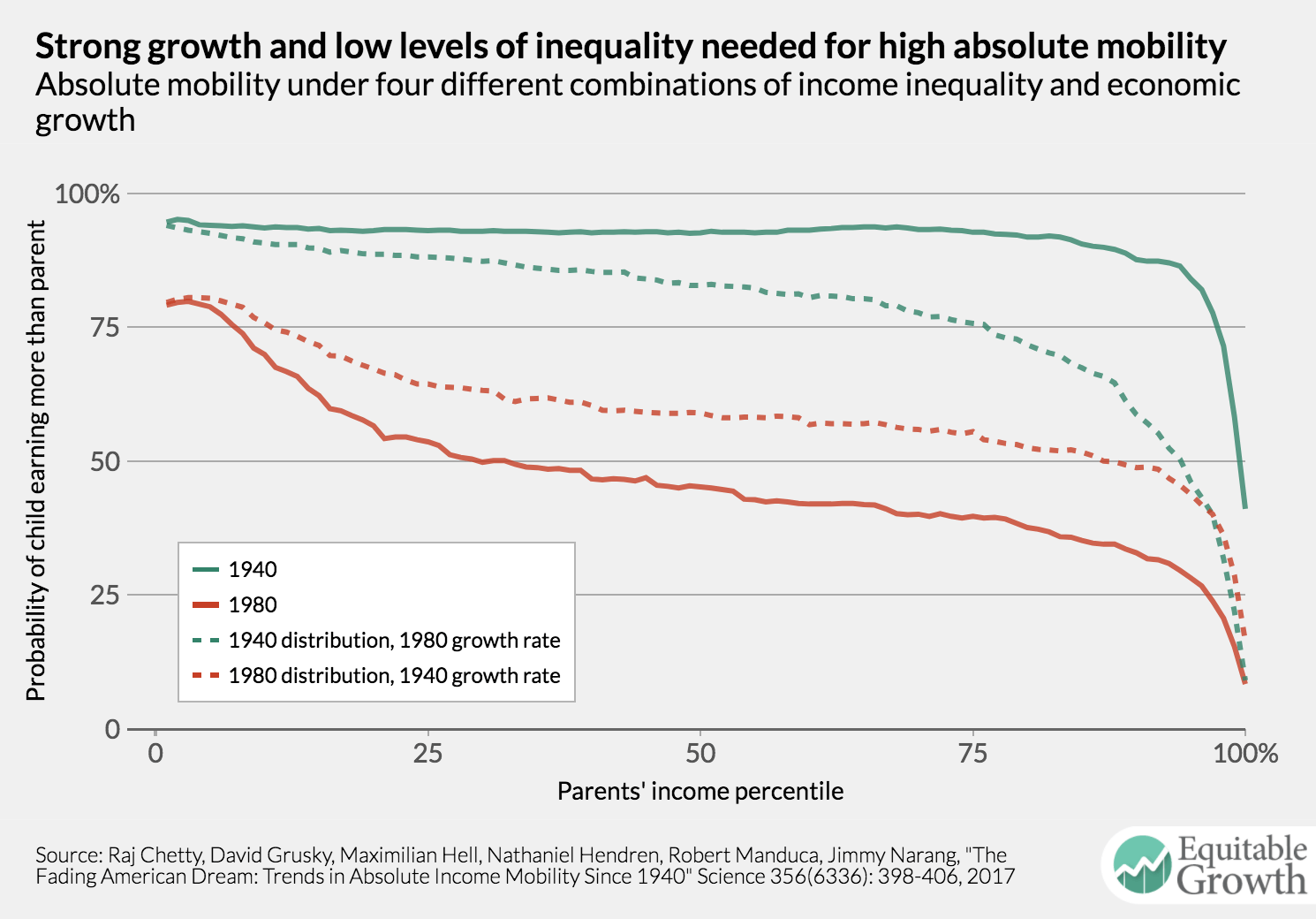Weekend reading: “Jolting news this week!” edition
This is a weekly post we publish on Fridays with links to articles that touch on economic inequality and growth. The first section is a round-up of what Equitable Growth published this week and the second is the work we’re highlighting from elsewhere. We won’t be the first to share these articles, but we hope by taking a look back at the whole week, we can put them in context.
Equitable Growth round-up
In the years since the beginning of the Great Recession nearly a decade ago, estimates of the potential growth rate of U.S. gross domestic product have declined. Does this mean productivity growth has slowed down? Not so, argues a new paper.
The newest data from the Job Openings and Labor Turnover Survey for the month of June were released this week. Check out some useful graphs on the state of the labor market that use data from the latest JOLTS report.
Many employers will ask for a workers’ previous salaries before decided upon the starting wage for new hires, potentially increasing wage gaps for women and workers of color. Bridget Ansel discusses recent research that looks at the effects of new policies to prevent salary history disclosure.
With U.S. tax reform on the congressional docket this fall, policymakers would be well-served to look at the relationship between business income and preferential tax rates. Nisha Chikhale highlights a paper looking at the shift of business income away from corporations and wages and toward so called pass-through entities and toward profits.
What’s the best way to boost absolute mobility for the next generation of Americans? Faster growth? A more equal distribution of income? Both help, but more equitable growth will do most of the work.
Links from around the web
Index funds are perhaps the best way for everyday investors to get a good return in the stock market. Yet they might have nefarious unintended consequences. Frank Partnoy looks at the rise of the idea of “common ownership.” [the atlantic]
“Gig economy” companies such as Uber Technologies Inc. and Instacart Inc. were founded during a weak labor market when workers’ time was relatively cheap. Kelsey Gee writes about how these companies are adapting as the labor market tightens. [wsj]
The Humphrey-Hawkins Full Employment Act is not very well-known by the general public, yet it provides the Federal Reserve with its full employment mandate—an important tool to redress racial inequities in the labor market, argues David Stein. [wapo]
Restaurant employment in the United States is on track to soon overtake the number of workers in the emblematic industry of the mid-20th century, manufacturing. Jeff Spross writes about how this shift is a sign of other changes in the U.S. economy. [the week]
The American people aren’t all that worried about the U.S. trade deficit. Well, at least not as much as they used to be. Justin Fox argues that perhaps we should at least keep an eye on this deficit. [bloomberg view]
Friday figure

Figure is from “The importance of equitable growth for future mobility in the United States,” by Nick Bunker
